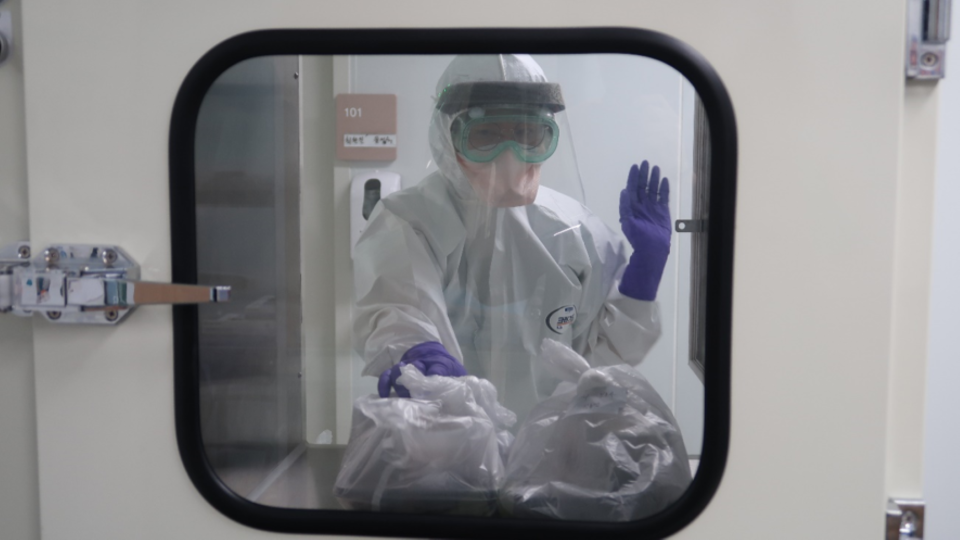ICN COVID-19 Update: ICN President urges NNAs to share information and learnings and support WHO “Be Ready” Campaign

International Council of Nurses (ICN) President Annette Kennedy praised National Nursing Associations for their great work in tackling Covid-19 and urged them to keep sharing information and learnings across our network and back the World Health Organization’s (WHO) new “Be Ready” campaign. ICN CEO Howard Catton has been getting the message out to international media, including the BBC and Sky News.
Ms Kennedy said:
“We are immensely proud of the way nurses are making self-sacrifices and putting patients first. We must do all we can to help them protect themselves and make sure that the message about basic hygiene, which is so vital to containing the virus, is getting through. ICN stands fully behind the World Health Organization’s ‘Be Ready’ campaign – please amplify this tweet on your networks:
ICN is standing side-by-side with @WHO as they help the world fight #COVID19. Through Being Safe, Smart & Kind we will Be Ready for the new #coronavirus. Learn more at www.who.int/COVID-19
Please pass on the good advice of the WHO. Something as simple but as vital as washing your hands can save lives. Nurses can get that message across to the public,” Ms Kennedy added.

WHO Advice Everyone must Be Ready:
- Individuals should practice washing their hands more.
- Businesses can promote teleworking.
- Journalists must report responsibly to challenge stigma and share accurate information that can protect people’s health.
ICN continues to work closely with WHO monitoring the progress of the spread of Covid-19 and supporting nurses through their ICN National Nursing Associations.
Latest WHO figures suggest that a reduction in the number of new infections in China – 129 on March 3, the lowest number since January 20 – shows that the measures being taken there are having a positive effect.
Elsewhere though, the number of people infected is growing: the infection is now present in more than 70 countries and there are sizeable clusters in the Republic of Korea, Iran and Italy.
WHO’s main strategy is to work with those countries to help slow the spread of the epidemic, and to prepare other countries to ensure they are ready with a ‘three Cs’ strategy that ensures they are:
- Prepared for the first Case
- Prepared for the first Cluster
- Prepared for Community transmission
ICN Chief Executive Officer Howard Catton has been speaking to the international media this week, including BBC and Sky News, calling for governments to prioritise giving more vital support to nurses both in terms of ensuring the supply chain of personal protective equipment (PPE) and psychological support. He also asked that manufacturers do all they can to make sure supplies of PPE are getting through.
Mr Catton said:
“I am concerned that at a time when the virus is spreading there are problems with the manufacture and supply of appropriate personal protective equipment (PPE) for nurses and other healthcare staff. ICN, as the global voice of nursing, is adding its voice to that of WHO in calling for manufacturers to step up their efforts to produce sufficient high quality PPE so that nurses can minimise the risk to themselves while they provide care to patients with the infection.”
'We also need to be aware that some nurses, including those aged over 60 and those with conditions such as diabetes, respiratory or heart disease, may need to be moved to area where they are less likely to come into contact with the virus.”
WHO is recommending a role out of Psychological First Aid (PFA) training, to lay people as well as to healthcare professionals, to ensure that the emotional needs of those caught up in the epidemic are met. WHO says that without emotional support it is unlikely that containment, treatment, isolation and quarantine will be successful.
Mr Catton added:
“As the epidemic spreads, more nurses will be involved in the care of sick patients and subject to the stresses and pressures that working with such sick patients brings. Taking care of their physical and psychological wellbeing is vital if they are to continue the vital work, they do to protect patients, their families and the communities they live in.”
'Nurses are proud of their holistic approach to patient care, and as WHO experts have said, this crisis is not just about numbers and medical issues: it is about communities of people and their feelings, emotions, anxieties, worries and fears. Unless they are listened to, acknowledged and dealt with adequately, it will compromise the effectiveness of all our other efforts to manage this disease.”
During his television interviews with Sky News and BBC, Mr Catton also highlighted the Year of the Nurse and the global need for more nurses, and more nurses in leadership roles underlined by their primary role in fighting coronavirus on the front lines. ICN has been reaching out to NNAs to share their stories and pictures on tackling COVID-19 and will continue to spread these messages of solidarity and learnings.
Below are some of the photos shared by NNAs this week:


Download the press release here